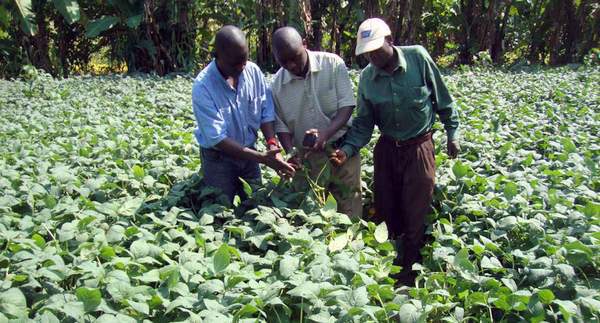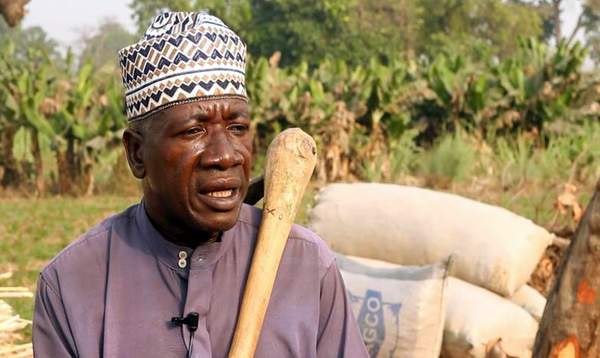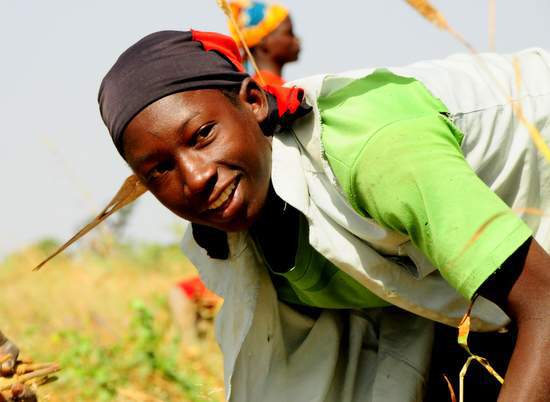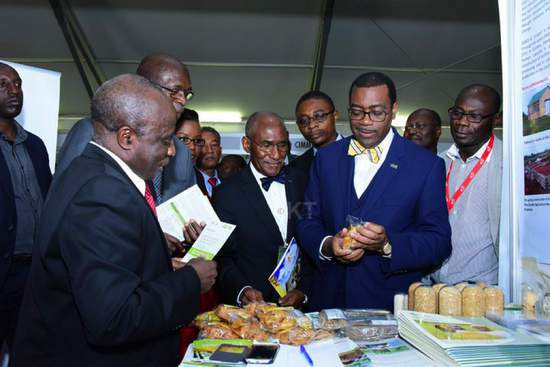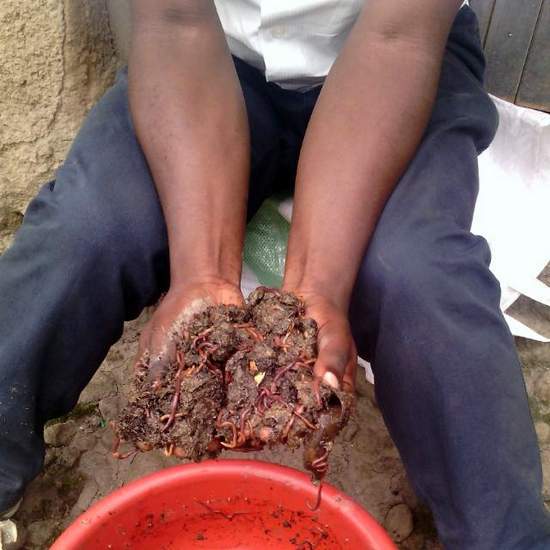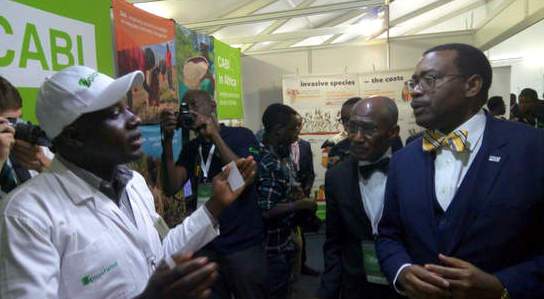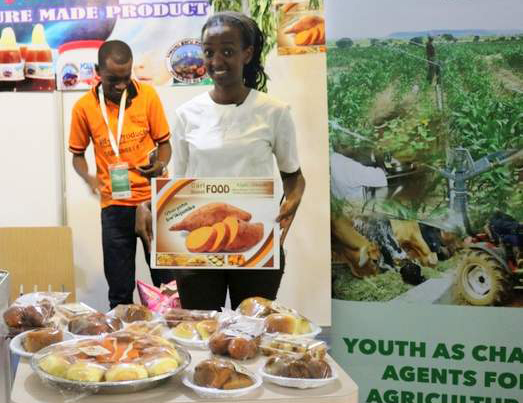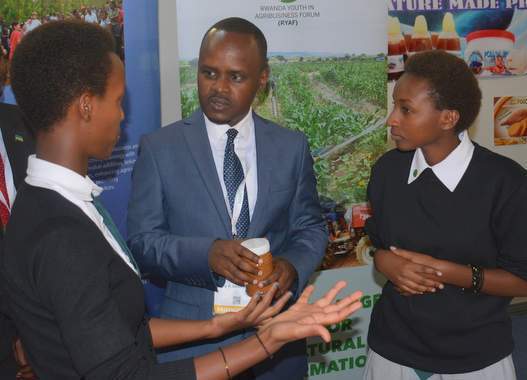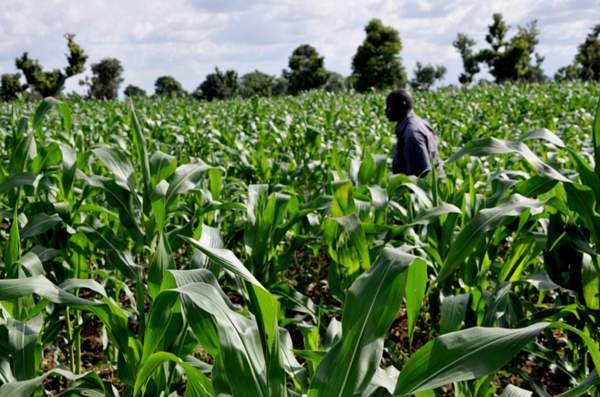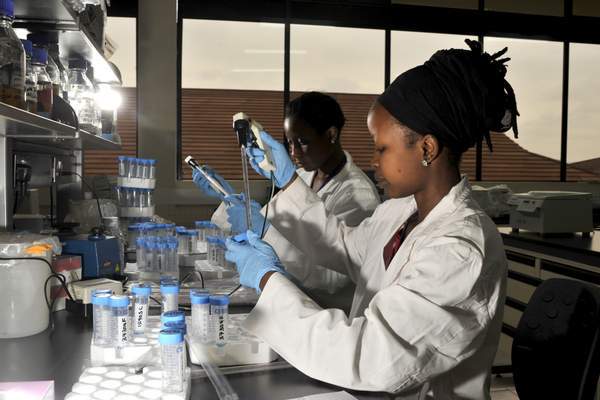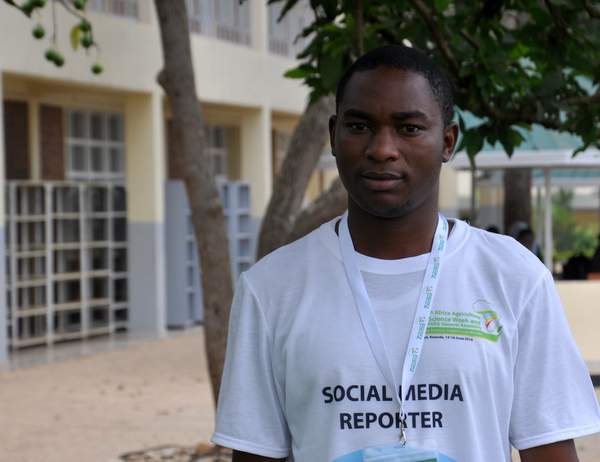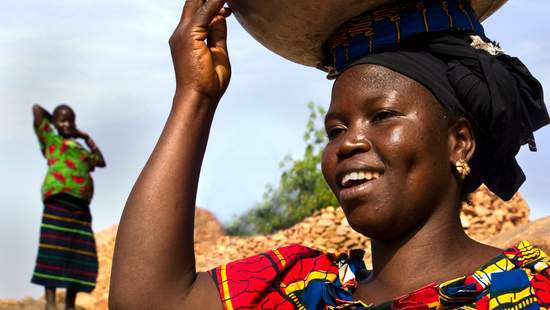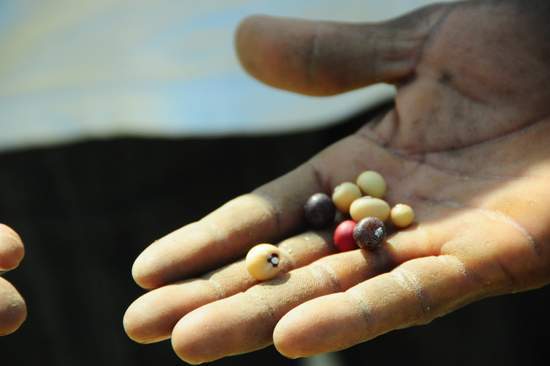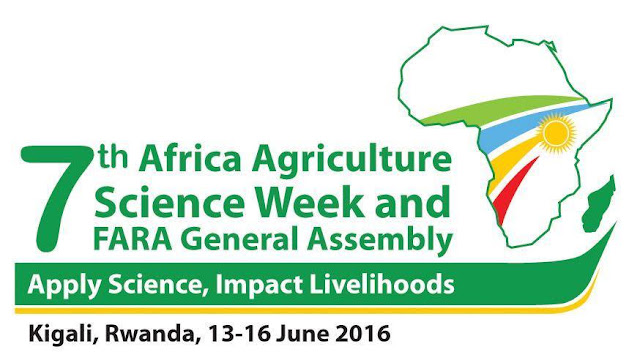The use of science, technology and innovations in the agricultural sector can help farmers to plan or expand their activities while reducing the challenge of climate and weather change. I found that one of most sustainable technologies could be the use of greenhouses.
Welcome To Talk Agriculture Nigeria
Talk Agric, Latest News, Agricultural Gist
Saturday, 16 July 2016
Technology and innovation as a key to agricultural development in Africa
The use of science, technology and innovations in the agricultural sector can help farmers to plan or expand their activities while reducing the challenge of climate and weather change. I found that one of most sustainable technologies could be the use of greenhouses.
About crops, pests and plant clinics
Some 795 million people in the world do not have enough food to lead a healthy active life. Worldwide,about 40% of crops are lost to pests and diseases. Research has shown that 1% reduction in crop loss could feed millions.
Never too young to engage in agriculture
 Anastase Murekezi, The Prime Minister of Rwanda and Dr Akinwumi Adesina, President of the African Development Bank pose with students from the Gashora Girls’ School, showcasing their products.
Anastase Murekezi, The Prime Minister of Rwanda and Dr Akinwumi Adesina, President of the African Development Bank pose with students from the Gashora Girls’ School, showcasing their products.Young people in any country represent the future. They have a vital role to play the development of their country in by working hard in any field they are involved in, be it teaching, engineering or farming.
Soybean: from words to action
Farmers in a soybean field
Around the world, 2016 was recognized as the international year of legumes. Several legumes promotion initiatives have emerged especially in Africa, to contribute to food security.
Around the world, 2016 was recognized as the international year of legumes. Several legumes promotion initiatives have emerged especially in Africa, to contribute to food security.
No Youth, No Farmers, No Food
“Our youth are not failing the system; the system is failing our youth.”— Rachel Jackson (anno 1800)
Youth unemployment remains one of the biggest hurdles faced by developing African countries, especially those of the Sub-Sahara. So it was encouraging to hear, at the 7th Africa Agriculture Science Week in Kigali, that the African Development Bank will invest in young people interested in agriculture.
More investment could make agriculture the "game-changer"
Africa must work hard to increase agriculture production to reduce poverty and promote economic growth, says Dr Chiji Ojukwu, Director of the Agriculture and Agro-Industry Department, at the African Development Bank (AfDB).
When Nigerian farmers went digital
The application of science and technology has no doubt improved the livelihoods of Nigerian farmers. This is a case study of Nigeria Farmer’s E-wallet System, the first in Africa, which is indeed worth of emulation and implementation by other African nations.
Africa embraces the opportunities
How do we build capacity in agriculture innovation to increase productivity and farm incomes while continuing to develop systems sustainably? That was the topic of a special side event organized as part of the FARA 7th Africa Agriculture Science Week (AASW7) in Kigali.
"Nice vision": Growing Africa's Agribusiness
Agribusiness is the field I find most interesting, exciting, and satisfying. I I have worked diligently to increase my understanding and mastery of this field. I want to help society find answers for serious problems like hunger, food insecurity, poverty and socio-economic development. I want to set a good example for my community and for young people to show that we can become our own bosses, enjoy rewarding careers, and build our economy, if we fully invest in what we have.
Africa needs to reduce it reliance food imports
Dr Akinwumi Adesina, the President of the African Development Bank, visits exhibition booths at the 7th Africa Agriculture Science Week
Agriculture experts are gathered in Kigali, Rwanda to discuss ways how Africa can transform its agriculture into a technology-based sector.
Producing more, naturally
Vermicompost: a natural fertilizer
Crops need fertilizers to grow. Fertilizers, synthetic or organic, increase the quantity of essential nutrients boosting the growth of crops.
Crops need fertilizers to grow. Fertilizers, synthetic or organic, increase the quantity of essential nutrients boosting the growth of crops.
Doctors for farmers
Damien Nsabiyumve explaining the role of “plant doctors” in the “Plantwise” programme
The 7th Africa Agriculture Science Week (AASW7) organized by the Forum for Agriculture Research in Africa (FARA) is took place in Kigali-Rwanda from June 13-16. During this event many companies and organisations attended, and brought their products and services to market and share innovations from different regions.
Cakes with potatoes ?!
"They save lives in Rwanda." Clarisse Murekatete, smile, shows a large hand gesture, donuts and cakes, wrapped in transparent paper and placed on a small table.
Youth and agriculture, why disenchantment continues
In 2008, a food crisis is shaking the world. The food prices experiencing dramatic increases and generates political and social tensions. The "hunger riots" were qualifiers for events around the world by people to scream their despair. This crisis has once understand that good food of people self-sufficiency far from being an empty word must be a reality! A popular saying would not it said that "hungry did ear mark"!
Friday, 15 July 2016
Never too young to start an agribusiness!
Sandrine Mukezinka and Ariane Kangabo are young Rwandan innovators and entrepreneurs. When they ate peanut butter for the first time at their high school, they asked the school’s headmaster: “How could we make this? We want to produce this in larger quantities, and sell it!”
Cover the rice Africa ...
Rice is a staple food for millions of Africans and is important for achieving food security. However, in Africa, rice has a yield of less than 1.4 tonnes per hectare compared to the world average of 3.4 tonnes per hectare per year. Thus, the rice is not enough product in Africa to cover all needs.
What if?
Your soil fertility will be affected. You will get cancer. You will die. Better still, you will lose a leg. Well, the last one is pun intended to highlight just a few one liners that you hear when the GMOs discussion ensues. On the other end of the debate are those who push GMOs as the silver bullet for agricultural production and food security in Africa.
What science for African agriculture?
International Research Laboratory breeding Nairobi, managed by ILRI-BecA
"Researchers who seek are found, but the researchers found that one looks in"
This assertion him alone summarizes the perception of citizens about researchers in many countries. Being a researcher is considered, rightly or wrongly as a member of a class of person that works recluse way on subjects which interest is hardly noticeable to the majority of people.
Africa, Agriculture and me
Forgive me if I take African agriculture issues personal…
Africa has 65% of all arable land left in the world. Africa has not only the potential to feed itself, but also to feed the world. But Africa can not eat “potential”. We need to turn Africa’s potential into a reality, keeping in mind that sustainable agriculture is at the very centre of the global development agenda.
The agricultural expertise to Rwandan students
Niyibisys Leon (left) explains to a student how to expose its product
Advise, train and support young people of Rwanda in their creative innovations of Agricultural Sciences, are the challenges that have been launched by teachers of science department and nutrient technologies of the University of Rwanda (UR-CAVM).
Incubating young agripreneurs…
The biggest challenge Africa is facing is its high level of youth unemployment. 60% of of the unemployed in the continent are youth. And youth constitute 40% of the continent’s population.
African countries, institutions and partners are striving to reverse this negative trend, through different programs: Youth in Africa are being mobilized and empowered to grab opportunities. They should become job creators rather than job seekers.
let's be concrete
Despite "the vast agricultural potential that Africa" expression seemed to me more and more "truism" hunger and malnutrition persist on the continent. In 2003, African leaders had pledged to devote 10 percent of their national budget to agriculture "conscious" of its importance in the economic development.
Made in Africa
A lecturer, Head of the mechanization department in the College of Agriculture at University of Rwanda, has found interesting ways to reduce the drudgery often faced by farmers in their various farming and non-farming operations.
Dr. Deepak Das, together with his final year students, have designed innovative machines and equipment which can be used by farmers with a minimum investment on the farmer’s part.
Sunday, 29 May 2016
Monday, 2 November 2015
Sunday, 25 October 2015
Tuesday, 20 October 2015
Caribbean-Pacific Agri-Food Forum, 02-06 November 2015 in St Michael, Barbados.
The Forum will be organized by CTA, in collaboration with the Barbados Agricultural Society (BAS) and several other partners. It will be held from 02 to 06 November 2015 in Bridgetown, Barbados.
Monday, 31 August 2015
Web 2.0 and Social Media goes to Federal Ministry of Agriculture & Rural Development, Abuja
The Technical Centre for Agricultural and Rural Cooperation (CTA) Netherlands
who is working in collaboration with The United
Nations Institute for Training and Research (UNITAR) organizes a training on Web 2.0 and Social Media for the staff of Federal Ministry of Agriculture & Rural Development, Abuja.
It has become apparent that Nigeria agriculture is evolving and the CTA
is obviously positioning itself as a major partner.
More Information and pictures after the cut
Tuesday, 2 June 2015
Congrats my Boss! President of African Development Bank
 |
| President-elect AfDB, Dr. Akin Adesina |
After 50 years of the existence of
African Development Bank, Nigeria won the exalted position of the Presidency of
the continental organization. Dr. Akinwumi Adesina had a landslide victory
after a very tough contest with other 7 contestants from across Africa. The
rule is that a winner must score 50.1% and above of the regional votes.
Having
attended for the first time, i could see that the election of the position of the African
Development Bank cannot be regarded as a child’s play in any sense. The election,
usually witnessed and conducted by member countries as well as non member
community, including France, United States, Japan and China took place in
SOFITEL Hotel, Abidjan, Cote d’Ivoire.
The week-long event culminated in a series of vote, alignment and
realignment, intrigues, power play and political manoeuvrings; which saw Akin
Adesina emerged as the winner at about 4.30pm, 28th May 2015, having scored 60.50% regional
vote and 58.10 of the total votes.
With the support of God, Adesina did his home work quite well to make
him stand out in all the preliminary interviews and presentations to the group;
he is equally well qualified for the job. Let’s once again
look at his background:
Dr. Akinwumi Adesina has intimidating credentials and enviable track records of outstanding achievements within and outside Africa. He had contributed in so many ways to improve agriculture and food security in some African countries. Mr. Adesina has over 20 years of experience in African agriculture, development policy and rural development
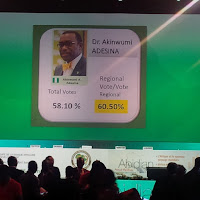 |
| Adesina's election score Board |
Dr. Akinwumi Adesina has intimidating credentials and enviable track records of outstanding achievements within and outside Africa. He had contributed in so many ways to improve agriculture and food security in some African countries. Mr. Adesina has over 20 years of experience in African agriculture, development policy and rural development
Thursday, 7 May 2015
Adesina refutes allegation on Duty Waivers to Rice Importers!
 |
| HMA Adesina holding a bag of Nigerian Rice |
Reading
the allegation of fraud in rice import and linking it to the Honourable
Minister of Agriculture, Dr. Adesina Akinwumi, I did not blink my eye because I
would not imagined the Honourable Minister of Agriculture, Dr. Adesina Akinwumi
being in charge of collection of duties or levies on food imports, specifically
Rice. The Nigerian House of Representatives was in the media recently claiming
that the Minister has no power to issue duty waivers to rice importers. The
House further stated that the Minister did allocate rice import license to some
rice millers without due process. The house lamented the bureaucracy in
government procedure and the insincerity of the importers; both of which could undermine the good government policy on rice
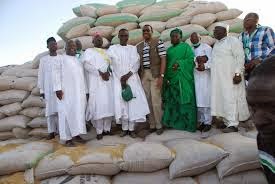 |
| Rice Pyramid in Kano |
The
lawmakers therefore called for a complete review of the 2014-2017 fiscal policy
on rice, in order to achieve the intended goal of self sufficiency in rice
production. I regarded the news as dead on arrival and therefore discountenanced
it; my position was based on the following factors:
1. Dr.
A. Adesina is the Minister of agriculture of Nigeria and not of Thailand;
2. The
Minister is an apostle of consumption of Nigerian Food;
3. Adesina
has the greatest passion for Nigerian agriculture and he has been pursuing the
goal of self sufficiency in rice production since his first day in office;
4. A
lot of hard work had gone into local rice industry development which has
achieved great impact in terms of improved local production capacity & productivity;
reduction in rice import bill; increased local and foreign investment in rice
production and processing;
5. A
good number of locally produced, processed and branded rice are now in Nigerian
markets.
 |
| Nigerian Rice Brands |
6. Adesina that i know, is a man of impeccable character and has been one of the most transparent and honest public officer that i have ever come across. He is a man of contentment and who has never demonstrated any corruptive tendency. It will therefore be very difficult to find him in such messy and fraudulent practice.
Therefore, in response to the allegation, Adesina
came out tell the story to the Lawmakers to enable the public understand the
true position of things and the role of each category of stakeholders.
Tuesday, 28 April 2015
Climate change: a challenge to the human survival.
 |
| Gov. B. R Fashola |
Climate change is a phenomenon that has remained a major
challenge to human survival and will therefore require an all encompassing strategy to mitigate it.
Governor Babatunde Raji Fashola stated this at the 7th climate change summit in Lagos
last week. He disclosed that different policies have been put in place by
successive administrations in the State to ensure a sustainable environment &
livelihood; including the Eko Atlantic project initiated by the State former governor, Senator Bola Tinubu.
 |
| Lagos Flood |
Specific efforts made to combat
climate change and militate against it effect include the tree planting
programme, establishment of climate change Club in schools, advocacy, better
waste management and improved transportation system. The project was aimed at curbing the loss of
properties and destruction of public infrastructures due to the effect of the phenomenon.
 |
| Gas Polution |
The Lagos island independent power plant, Lekki independent power plant, mainland independent and Alausa independent power plants have all cut down the use of diesel generator, thereby reducing carbon emission into the environment.
Sunday, 26 April 2015
Indiscriminate slaughtering of animal: Lagos set to regulate the act.
 |
| Gov. Raji Fashola |
The Lagos state
government will no longer tolerate the indiscriminate slaughtering of animals
just anywhere as it's been practiced now. The state is repositioning the abattoir
arrangement in the state to make the activities more hygienic than the way it is
being done now, on filthy platforms.
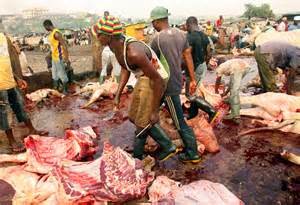 |
| Local Abbattoir |
This was made known by Prince Gbolahan
Lawal, the State Commissioner for Agriculture & cooperatives during the
inauguration of 10-days training for 25 veterinary officers in Lagos. He said that
the policy will also boost the capacities of veterinary Doctors and Officers
for the implementation of the policy and effective monitoring and inspection of
the abattoirs.
 |
| Modern Abattoir |
The Train the Trainers programme was carried out in conjunction
with PWC consultant UK. Speaking at the event, the Managing Director of PWC
Consultancy, Kate Okafor also advised the trainees to be ready for change, away
from the usual unhygienic meat supply practices and bring about the desired
change in the abattoir management in the State.
Wednesday, 22 April 2015
Building Cassava Industry National Platform: IDH-Grow Africa
As part
of the efforts of the Sustainable Trade Initiative, (IDH) and Grow Africa to
promote cassava industry in Africa, the two
organizations have jointly carried out different programmes across Africa to
bring all the stakeholders together on the same platform. While IDH is a
private organization funded by Swiss, Dutch and Danish governments and gives
grant to companies that work with small holder farmers, Grow Africa is an
offshoot of the World Economic Forum with the objective of creating wealth in
Africa. The pilot intervention on cassava will be in Nigeria, Ghana and
Mozambique.
Developing the national cassava platform is one of the major steps in
actualizing the dream of transforming the industrial cassava value chain. The
inauguration of the Nigeria national platform which is a follow up to the
earlier meeting held by the working group, is taking place today, 22nd
April 2015. The national platform is expected to be set up in the three African
countries and targets the medium to large scale cassava processors who are
working directly with small scale farmers. The Examples of the member companies
on the platform are Niji Lukas Foods, Eagleson & Nico Concepts Cassava
Flour, Honeywell Flour Mills, Psaltry International Starch Company, C: AVA 11, FMARD,
Jubili Agro-Chemicals, Solidaridad Network, Dadtco Cassava Flour, Business
Innovation Facility of UK/DFID, Notore Fertilizer Company, Catholic Relief
Group, Federal Institute of Industrial Research Oshodi, (FIIRO), TAC, Allied
Atlantic Distilleries Limited, (AADL) and others.
| Medium Scale HQCF Plant |
The objectives of the Platform include:
·
Share experiences and learnings in
non-competitive areas to address constraints in the relatively new sector.
·
Align private sector interest (secure value
chains) and public interest (poverty reduction, economic growth, environmental
stewardship).
·
Facilitate partners to conduct advocacy and to
take action to address common issues.
The meeting is expected to look at other cross
cutting issues which can be collectively addressed for the progress of the
industry.
Subscribe to:
Comments (Atom)


